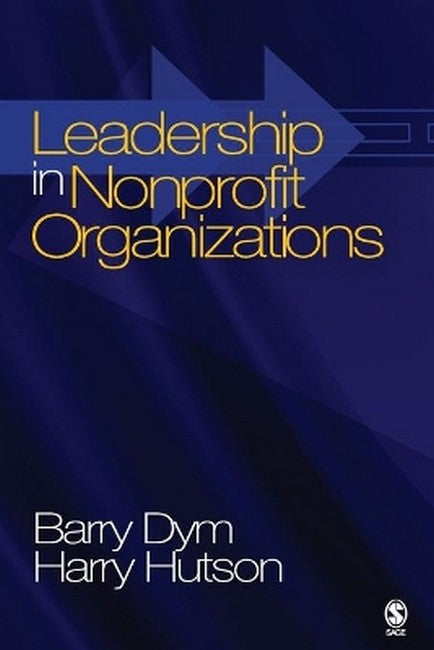Barry Dym is an organization development consultant, executive coach, psychotherapist, and entrepreneur. His clients range from small nonprofits, high tech start up companies, and both public and private school systems to large corporations, such as State Street Corporation, The Boston Globe, Honeywell, and Massachusetts Financial Services (MFS). He was the co-founder of the Family Institute of Cambridge (1975) and the founder and Director of both the Boston Center for Family Health (1985) and WorkWise Research and Consulting (1997). For fourteen years, he served as a Lecturer at the Harvard Medical School. He has written three previous books, Leadership Transitions, Couples, and Readiness and Change in Couple Therapy, co-founded a professional journal, Families, Systems, and Health, and newsletter, Collaborative Family Health Care, and has also written many articles, including "Utilizing States of Organizational Readiness" (with Harry Hutson), winner of the Larry Porter Prize as the best article on organizational development, 1998-99, "Resistance in Organizations: how to Recognize, Understand and Respond to It," "Integrating Entrepreneurship with Professional Leadership," and "Forays: The Power of Small Changes." Harry Hutson, is a leadership and organization consultant whose practice focuses on the human side of strategic change. He designs and leads system-wide planning events, results-focused workshops and team-building exercises. In addition, he provides individual coaching for executives. He performed in senior human resources roles for more than twenty years at three multinational corporations--Cummins Engine, Avery Dennison, and Global Knowledge Network. A former secondary school teacher in Moorestown, NJ, High School, his doctoral research explored relationships between the views of influential people in a local community and what was being taught in the public schools. He has served for many years on the Board of Directors of the New England Center for Children, a school for autism and other disabilities, where he is the Vice-Chairman. His publications include articles on teambuilding methods, continuing education, community building, readiness for change, and the relevance of hope for organizational renewal. He has presented workshops at professional meetings sponsored by organizations such as Training Magazine, Organizational Development Network, New England Human Resources Association, Learning Conference (UK and US), Association for Quality and Participation, and Pegasus/Systems Thinking.
Request Academic Copy
Please copy the ISBN for submitting review copy form
Description
Chapter 1: Introduction Chapter 2: Casa Myrna Vazquez Chapter 3: Theoretical Alignment Chapter 4: The Cultural Narrative of Leadership Chapter 5: Goodness of Fit Chapter 6: The Alignment Map Chapter 7: Community Therapeutic Day School: A Beautifully Aligned Organization Chapter 8: The Dynamics and Cycles of Alignment Chapter 9: The DNA of Leadership Chapter 10: The Practice of Alignment Chapter 11: Utilizing States of Organizational Readiness to Achieve Alignment Chapter 12: The Alignment Exercise Chapter 13: Inner Alignment and the Experience of "Flow" in Leadership
"They develop the concept of "good fit" between the leader and complex circumstances in which she or he must lead; they explain how leaders can increase the readiness for change in their organizations." -- Naim Kapucu

